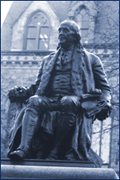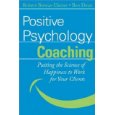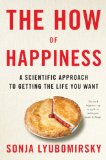…Authentic Happiness Coaching, Martin Seligman, and Ben Dean
 You might remember the character played by Molly Shannon on Saturday Night Live, licensed joyologist Helen Madden. What you might not know is now you can get a professional graduate degree from an Ivy League university studying a curriculum based on research on happiness. This is not some single course with what sounds like a crackpot title you occasionally hear about in news reports. It’s a respected masters degree based on peer-reviewed science by leading researchers.
You might remember the character played by Molly Shannon on Saturday Night Live, licensed joyologist Helen Madden. What you might not know is now you can get a professional graduate degree from an Ivy League university studying a curriculum based on research on happiness. This is not some single course with what sounds like a crackpot title you occasionally hear about in news reports. It’s a respected masters degree based on peer-reviewed science by leading researchers.
 “Positive Psychology” is an expansion of psychology’s focus beyond a disease model, to understand how normal people can be happier, how individuals and communities can thrive. Professor Martin Seligman is a former president of the American Psychological Association, the 13th most frequently cited psychologist in introductory psychology textbooks throughout the 20th century, and the leader of the modern “positive psychology” movement, having brought this effort into focus in the research arena. He and others at the University of Pennsylvania have created the first Master of Applied Positive Psychology (MAPP) program. (Visit the Positive Psychology Center and see “Educational Programs” for more information.)
“Positive Psychology” is an expansion of psychology’s focus beyond a disease model, to understand how normal people can be happier, how individuals and communities can thrive. Professor Martin Seligman is a former president of the American Psychological Association, the 13th most frequently cited psychologist in introductory psychology textbooks throughout the 20th century, and the leader of the modern “positive psychology” movement, having brought this effort into focus in the research arena. He and others at the University of Pennsylvania have created the first Master of Applied Positive Psychology (MAPP) program. (Visit the Positive Psychology Center and see “Educational Programs” for more information.)
UPDATE: I’ve posted a letter about the Master of Applied Positive Psychology (MAPP) program at Penn in another article.
What even fewer people know is that before the Master of Applied Positive Psychology program existed, Martin Seligman led an extended semester online / conference-call course which was a condensed version of this material. It was coordinated by Ben Dean, Ph.D., founder of Coaching Toward Happiness. Like the MAPP, it was attended by professionals from a wide variety of backgrounds. It had a large contingent of professional coaches such as executive and especially life coaches. The course name, “Authentic Happiness Coaching,” combined Martin Seligman’s “Authentic Happiness” (web site, best-selling book) with Ben Dean’s focus on coaching. It was offered four times if I remember correctly, and I was privileged to participate in the third and fourth courses.
Obviously the MAPP course goes into much greater depth, and students also come from all over, but I enjoyed what I assume was a greater diversity in terms of location. As an online / conference-call course, we were able to have a number of participants from other countries, in addition to every corner of the U.S.
Guest lecturers included many of the most well-known researchers in positive psychology, who talked about the most compelling aspects of their work. Others involved in the course were very interesting people too. Dr. Tayyab Rashid worked with Dr. Seligman on research at the Positive Psychology Center at the University of Pennsylvania, but to me what was special about him was his depth and insight, as well as a quality of warmth that made people feel at home. He was my discussion section leader. One of the students I corresponded with afterward was Dr. Howard C. Cutler, co-author with the Dalai Lama of The Art of Happiness.
This wasn’t the first or last project Ben Dean has undertaken. He always seems to have a course or a lecture featuring one of the stars of positive psychology coming along. Typically the lectures are by phone “bridge” conference-call, and questions can be emailed beforehand, but at any time Ben might open the floor electronically for a question. Sometimes there are hundreds of participants, so in such cases participation is limited, but it’s impressive to see, and Ben handles it well.
Sometimes Ben will arrange for a positive psychology superstar to do an interview or a presentation that’s free. All you have to do is register and make a call to the number in New York. (Even if you pay 5 cents a minute, that’s only $3 for an hour.) Last week he had Ed Diener and Sonja Lyubomirsky on for a two-hour interview.

Ben also gives one-day workshops in major cities, runs “Foundations” coach training classes as well as advanced classes taught by guest faculty, and provides coach certification. He even wrote a book with Robert Biswas-Diener that came out last year, Positive Psychology Coaching: Putting the Science of Happiness to Work for Your Clients
.
Go to www.coachingtowardhappiness.com and you can sign up for his free newsletter. If you’re interested in coaching, check out www.mentorcoach.com.
UPDATE: See my comment below about the Positive Psychology online course through the University of Pennsylvania.
![[Circle]](http://www.meaningandhappiness.com/pictures/GoldCircle36i.png)


